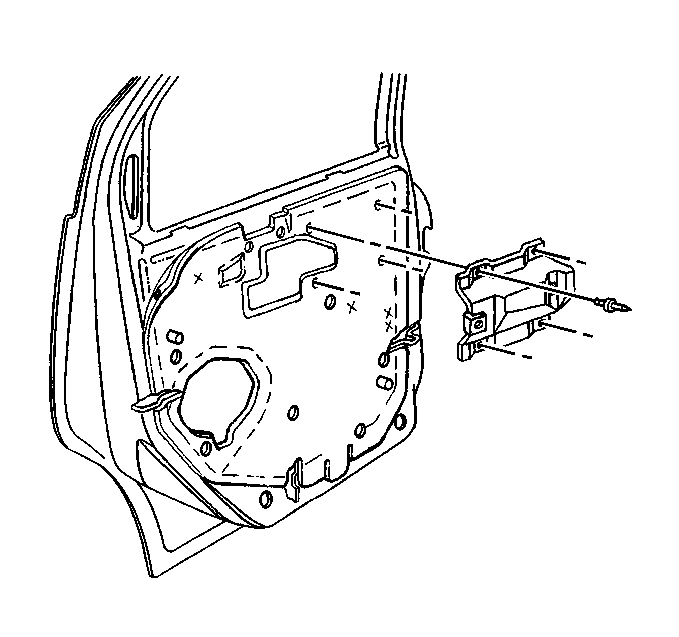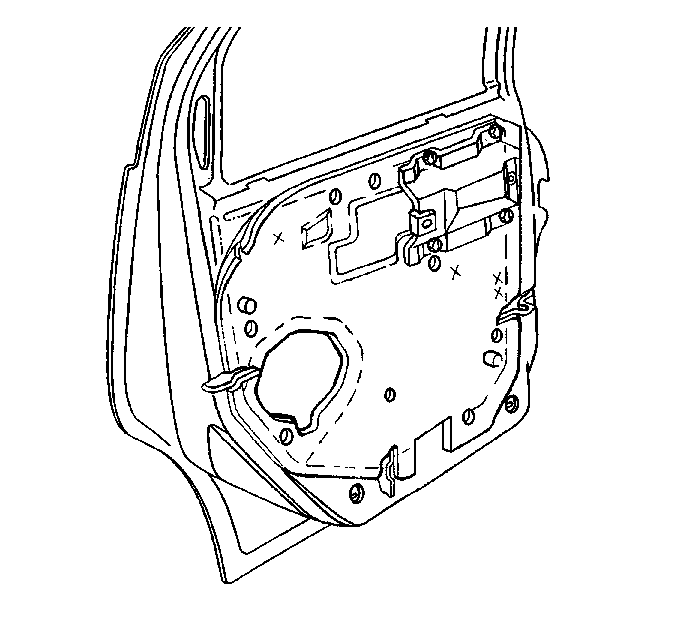
The water deflectors on
all doors serve multiple purposes. The deflectors help to prevent the following
circumstances:
More importantly, water deflectors help to seal the interior of the
vehicle from the intrusion of vehicle exhaust.
All door water deflectors are perforated in order to assist the technician
in accessing the interior of the door for service. In some cases, peeling
back on the deflector will be needed.
Reseal the deflector if the deflector is separated at a perforation,
peeled back, or removed from the door in order to prevent the intrusion of
exhaust gases. When replacing deflectors which have been peeled back
or removed, the adhesive on the door and the deflector from the factory
will usually be adequate in order to re-adhere the deflector to the
door. If additional adhesive is required, use a small amount of weatherstrip
adhesive, such as GM P/N 12345096 or equivalent. If the deflector was
separated at a perforation, use a cloth reinforced tape with a strong
adhesive in order to secure the piece together.
Replace the deflector if the deflector is too badly damaged to provide
a proper seal.
Removal Procedure
- Remove the trim panel. Refer to
Door Trim Panel Replacement
.
- Use a 6 mm (1/4 in) drill bit in order to remove
the head from the rivet.
- Remove the rivets that retain the bracket to the door.

- Remove the armrest bracket.
- Remove the lock lever. Refer to one of the following procedures:

- Use a soft-faced scraper
in order to peel the water deflector away from the door.
Installation Procedure

- Install the water deflector.
- Install the lock lever. Refer to the appropriate procedure:
- Install the armrest bracket to the door.
- Install the 6 mm (1/4 in) rivets to the door.
- Install the trim panel. Refer to
Door Trim Panel Replacement
.




